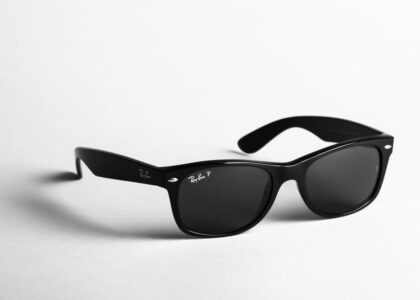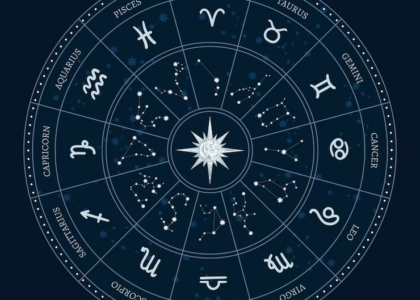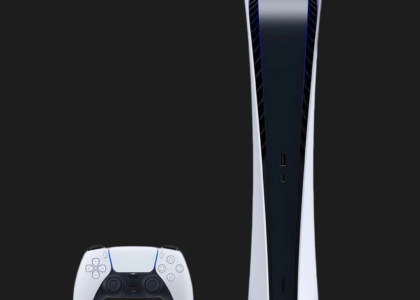The Nobel Prize in Physiology or Medicine, one of the most prestigious honours in the scientific realm, has been awarded to two visionary minds, Professor Katalin Kariko and Professor Drew Weissman, for their monumental contributions to humanity’s battle against the COVID-19 virus. Professors Kariko and Weissman developed the technology behind the mRNA COVID-19 vaccines. Their remarkable achievements, once considered experimental, have now safeguarded millions of lives across the globe, offering a glimmer of hope in the face of this modern-day plague.
Background on COVID-19
The COVID-19 pandemic, originating in late 2019, quickly evolved into a global crisis of unprecedented proportions. The virus, known as SARS-CoV-2, caused a respiratory illness that spread rapidly from its origins in Wuhan, China, to every corner of the globe. The pandemic had severe health, social, and economic impacts, leading to widespread illness, loss of life, economic disruptions, and restrictions on daily life.
The breakthrough came with recognising messenger ribonucleic acid (mRNA) technology’s potential in vaccine development. Unlike traditional vaccines, mRNA vaccines do not introduce a weakened virus into the body. Instead, they use genetically engineered mRNA to instruct cells to produce a protein that triggers an immune response. This approach offered a faster and more adaptable way to create vaccines.
Professors Katalin Kariko and Drew Weissman played a pivotal role in advancing mRNA technology. They realised that the body’s immune system could perceive lab-grown genetically engineered mRNA as foreign, leading to unwanted inflammatory responses. Their groundbreaking work, published in 2005 and further developed in subsequent years, addressed this challenge by introducing chemical modifications to the mRNA.
The Nobel Prize Announcement
On the 2nd of October, 2023, the Nobel Prize in Physiology or Medicine was awarded to two scientists, Katalin Karikó and Drew Weissman, for their groundbreaking work that paved the way for developing mRNA COVID-19 vaccines. The Nobel Assembly of Sweden’s Karolinska Institute made this prestigious announcement.
The award, one of the most esteemed in the scientific community, includes a prize of 11 million Swedish crowns (approximately $1 million), which will be shared between the two laureates. The Nobel Prize ceremony is scheduled for the 10th of December, 2023, the anniversary of Alfred Nobel’s death, where Karikó and Weissman will receive their well-deserved awards.
The Nobel Prize committee noted that their work had contributed to the unprecedented pace of vaccine development during one of modern history’s most significant health threats. mRNA vaccines, now used worldwide, have not only been effective against COVID-19 but have also opened new possibilities for vaccine development against other diseases, including cancer.
Katalin Karikó and Dr. Drew Weissman: Contribution and Impact
Katalin Karikó, originally from Hungary, joined the University of Pennsylvania in 1989 as an adjunct professor and researcher. She crossed paths with Dr. Drew Weissman, a professor of medicine at Penn, in 1997. Together, they embarked on a scientific journey that would eventually revolutionise vaccine technology.
In 1995, despite being on the path to becoming a tenured professor, Karikó faced a difficult choice at the University of Pennsylvania. The university allowed her to leave or accept a demotion with a pay cut. This decision came at a particularly challenging time, as Karikó had recently been diagnosed with cancer, and her husband was facing visa issues in Hungary.
According to reports, the reason for this demotion was the perceived risk and lack of sufficient grant funding for Karikó’s mRNA research. However, she courageously accepted the demotion and continued her work.
Even later, when she left her senior research investigator position at Penn in 2013, Karikó’s dedication to mRNA research did not leave her. She took on the role of vice president at BioNTech, a company that played a pivotal role in developing the Pfizer-BioNTech COVID-19 vaccine.
Research Breakthrough
In 2005, Karikó and Weissman developed nucleoside base modifications for mRNA, which prevented the immune system from launching an inflammatory response against lab-made mRNA. This was a crucial moment in the development of mRNA-based therapeutics. Their research demonstrated that modified mRNA was less likely to be recognised as foreign by the body’s immune system.
Building on this discovery, Karikó and Weissman continued their work throughout 2008 and 2010. These foundational findings laid the groundwork for future mRNA-based vaccines and therapies. Their persistence and innovative thinking in the face of scepticism were instrumental.
Reflecting on their Nobel Prize win, Professor Karikó expressed initial disbelief, considering it might be a joke. Meanwhile, Professor Weissman described his feelings as a mix of joy, doubt, and a hint of suspicion. However, upon seeing the official announcement, the reality of their achievement sank in, leaving them with a sense of overwhelming satisfaction.
Their groundbreaking findings provided the foundation for the Moderna and Pfizer/BioNTech COVID-19 vaccines, administered to millions worldwide. In the words of the Nobel Prize committee, “The laureates contributed to the unprecedented rate of vaccine development during one of the greatest threats to human health in modern times.”

How Karikó and Weissman Reacted to the Announcement
When they heard the news, Katalin Karikó and Drew Weissman were filled with joy and amazement. Drew Weissman said, “The future is just so incredible. We’ve been thinking about everything we could do with RNA for years, and now it’s here.” He couldn’t contain his excitement at the possibilities that lay ahead.
Katalin Karikó’s husband was the first to answer the early morning call with the incredible news. He handed the phone to her, and she couldn’t believe her ears. She said, “I couldn’t believe it. I was very much surprised. But I am very happy.” Her surprise quickly turned to happiness as the significance of their achievement sank in.
Even before the COVID-19 pandemic, mRNA vaccines were being studied for other diseases like Zika, influenza, and rabies. However, the pandemic truly brought attention to this groundbreaking approach. Karikó explained, “There were already clinical trials before COVID, but people were unaware.” The pandemic’s urgency made the world notice the incredible potential of mRNA technology in vaccines.
Previous Health-Related Nobel Prize Winners
Previous Nobel Prizes were awarded for the following achievements:
- 2022: Svante Pääbo for his work on human evolution.
- 2021: David Julius and Ardem Patapoutian for their work on how the body senses touch and temperature.
- 2020: Michael Houghton, Harvey Alter, and Charles Rice for discovering the virus Hepatitis C.
- 2019: Sir Peter Ratcliffe, William Kaelin Jr., and Gregg Semenza for discovering how cells sense and adapt to oxygen levels.
- 2018: James P. Allison and Tasuku Honjo for discovering how to fight cancer using the body’s immune system.
- 2017: Jeffrey Hall, Michael Rosbash, and Michael Young for unravelling how bodies keep a circadian rhythm or body clock.
- 2016: Yoshinori Ohsumi for discovering how cells remain healthy by recycling waste.
Summing Up
The Nobel Prize in Physiology awarded to Katalin Karikó and Drew Weissman in 2023 marks a historic moment in scientific achievement. Karikó and Weissman’s collaboration at the University of Pennsylvania yielded groundbreaking discoveries despite initial setbacks and challenges. Their story is a testament to the enduring spirit of scientific experiments, the importance of investing in innovative research, and the great impact dedicated scientists can have on global health.




